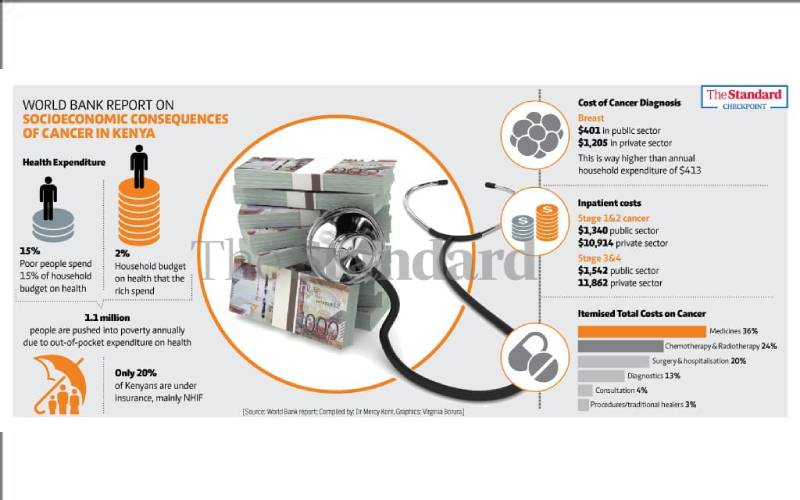×
The Standard e-Paper
Home To Bold Columnists

Colon cancer - which starts in the large intestine - is Kenya’s third commonest after cervical and breast cancer. This type is not as hyped as breast, lung, prostate and cervical cancer. It is considered taboo for the invasive nature of diagnosis and treatment, says Devani Smita, a consultant gastroenterologist at the Aga Khan University Hospital (AKUH), Nairobi.